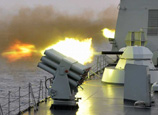
Take innovation again. Nowadays a team is often the basic unit of innovation, and research shows that the team's capability for internal management and cross-team communication "has a decisive role to play in innovation", Han said.
The team will have to find a way to bond with internal social capital on the one hand, and to bridge with external social capital on the other. Han said she has chosen this topic for one of her research papers.
Bonding social capital, she said, requires extensive in-group communication, in which all members exchange ideas with each other. No single person will know the final conclusion at the beginning of an innovation project.
Bridging social capital requires communication with parallel groups and the company's senior executives. But the reality is discouraging at times, in multinational as well as domestic companies. Due to improper and shortsighted performance evaluation methods, relations among different groups can be more of a competition or there is no relationship, and quite often coordination and cooperation are not systematically organized but occur arbitrarily, Han said.
After all, talent management is ultimately a leadership challenge.
One problem, Han mentioned, is that China's rapid changes in the past three decades have not allowed time for its many corporate executives to have substantial training in human resources and talent management. Leaders get promoted primarily for their technical expertise and sales numbers, not their experience and expertise in developing teams and fostering cooperation. Even worse, in many cases, "poorly managed HR systems drive talents away", Han noted.
One recommendation that Han makes to team leaders is to pursue shared leadership, which requires most members to get involved in team goal-setting and goal-adapting. Shared leadership also works by providing emotional support to teammates, especially when a team faces difficulties. It also promotes team members' participation in important decisions such as division of labor, forms of cooperation, and resource allocation throughout the whole process.
Shared leadership may sound inefficient to many Chinese managers who are used to the command-and-control style, which has been applauded for its efficiency. However, for Chinese companies who want to build their presence in new industries or new markets, while facing a new generation of employees with diverse backgrounds, some of them may find that shared leadership is effective if both the leaders and the employees work to change their mindsets.
Many Chinese companies have been expanding overseas while facing talent challenges in both their headquarters and foreign subsidiaries. One suggestion is to learn from history, Han noted.
"Western multinational corporations already have decades of stories of success and failure, when they were trying to expand from their home countries to the developing world. Chinese companies should look at where they stumbled and how. Why should they repeat the same mistakes when they can actually avoid them?"

















 Sea burial held in China's Tianjin before Qingming
Sea burial held in China's Tianjin before Qingming


![]()
